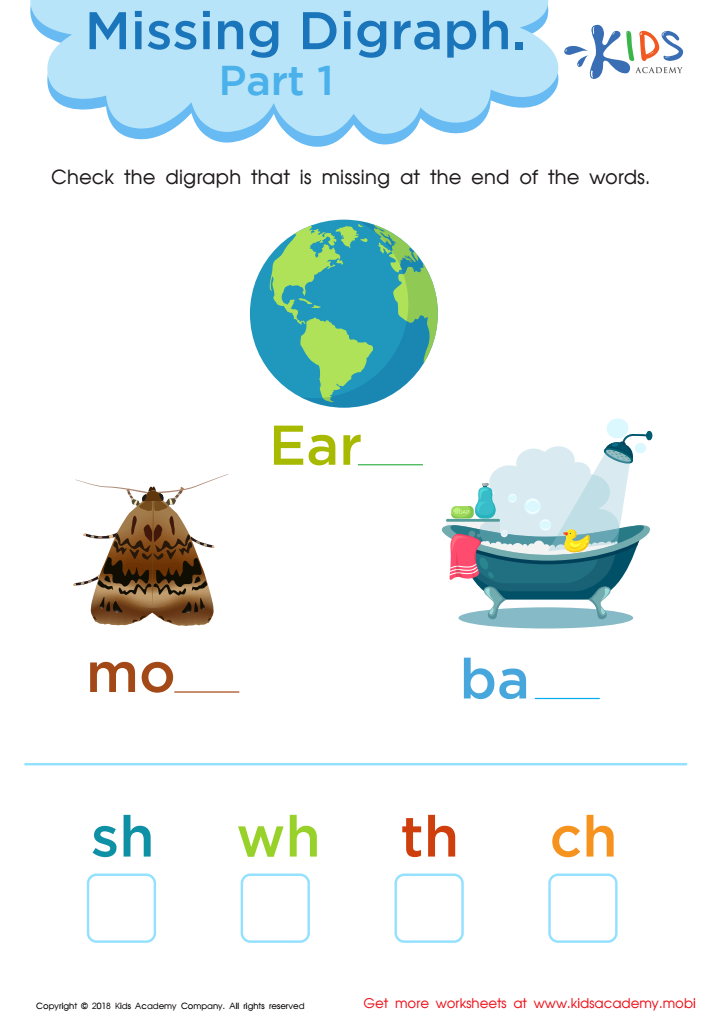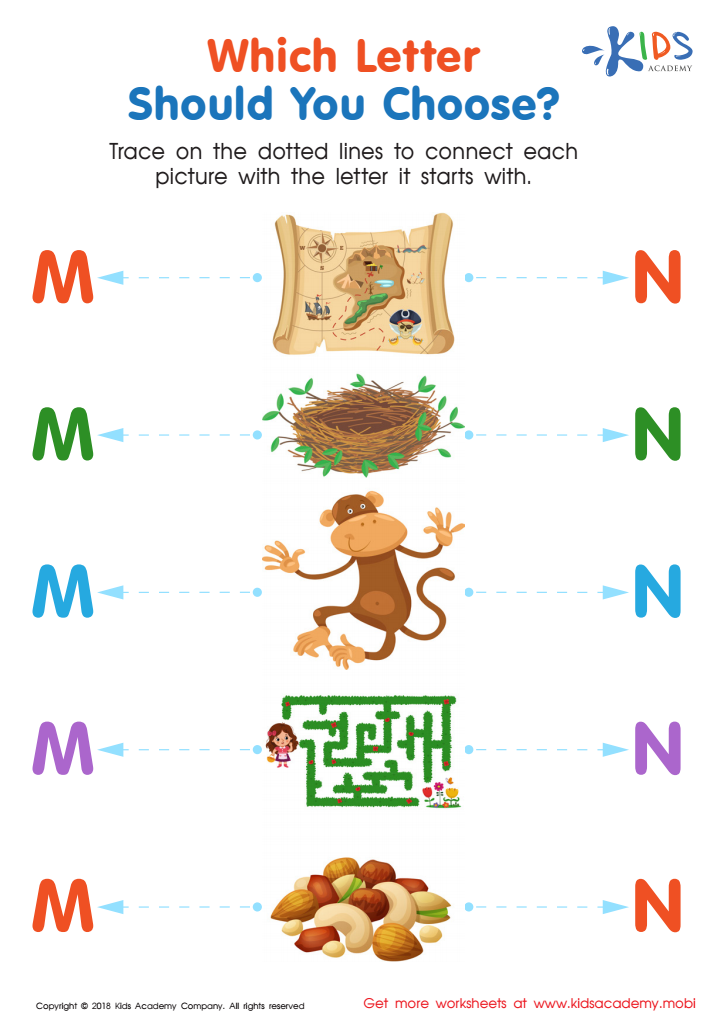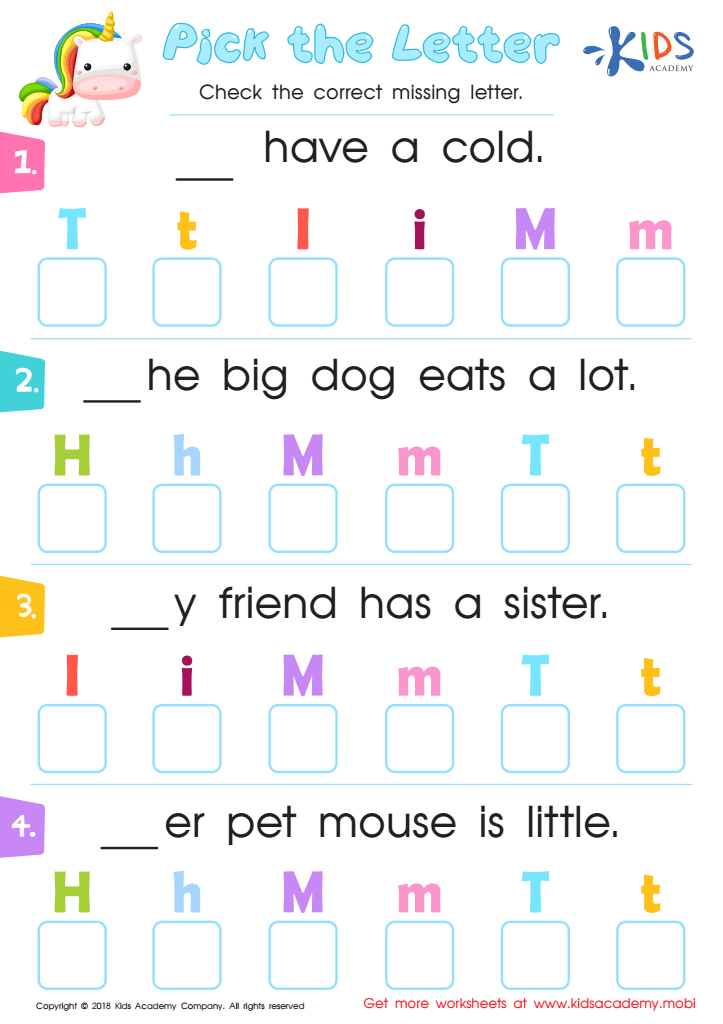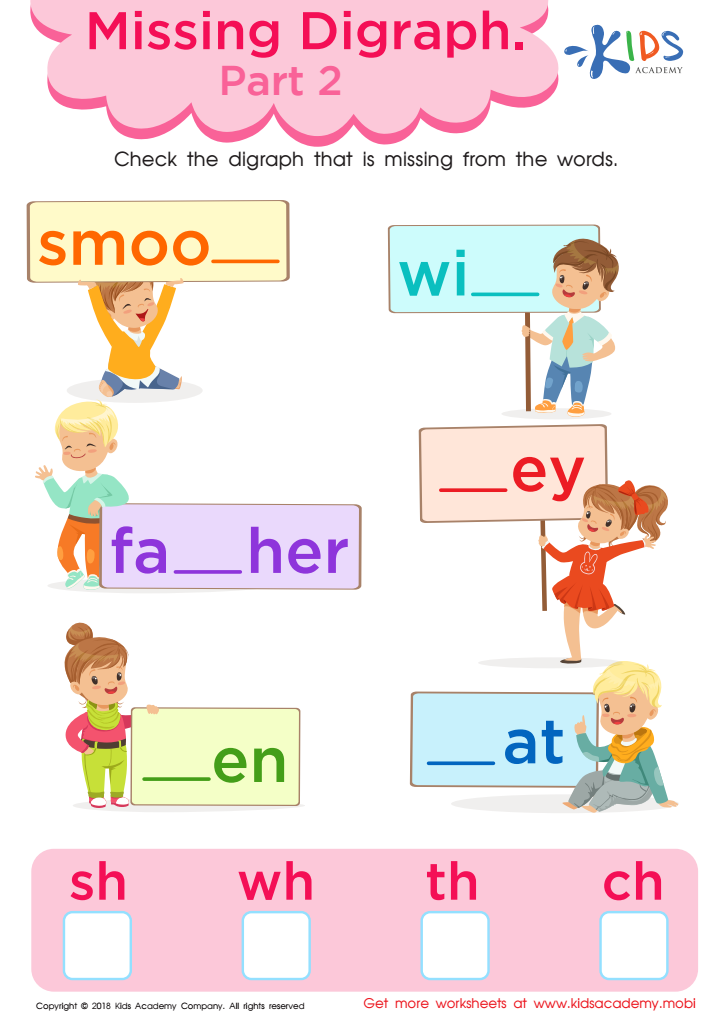Normal Missing Letters Worksheets for Ages 3-6
4 filtered results
-
From - To
Normal Missing Letters Worksheets for Ages 3-6 are perfect for early learners to practice and master the alphabet. Tailored for young minds, these engaging worksheets challenge children to fill in the missing letters in a fun and interactive way. They not only reinforce alphabet recognition but also enhance cognitive development and improve memory recall. Ideal for preschool and kindergarten students, each worksheet combines playful illustrations with educational exercises, keeping youngsters excited and motivated. Perfect for parents and teachers, these printables make learning the ABCs an enjoyable adventure. Explore our premium quality resources and watch your child’s confidence soar.


Missing Digraph: Part 1 Worksheet


Which Letter Should you Choose? Worksheet


Pick the Letter Worksheet


Missing Digraph: Part 2 Worksheet
Parents and teachers play a crucial role in the early development of children's literacy skills, and activities involving normal missing letters are highly beneficial for kids aged 3-6. These activities typically involve presenting children with words where one or more letters are omitted, requiring the child to identify and fill in the missing letters. This practice promotes phonemic awareness, helping children recognize the individual sounds that make up words.
Phonemic awareness is a foundational skill for reading and writing; it enables kids to decode words as they learn to read. By filling in missing letters, children also enhance their understanding of spelling patterns and word structure, essentials for developing spelling skills. Activities like this can be engaging and fun, making learning interactive and enjoyable.
Moreover, completing these tasks fosters problem-solving and critical thinking abilities. Kids experiment with different letters and sounds until they find the right one, reinforcing their cognitive development. Parents and teachers' involvement in these activities can provide immediate feedback and encouragement, positively reinforcing learning efforts and building confidence. In short, normal missing letters exercises are a practical and effective way to bolster early literacy, setting a strong foundation for future academic success.

 Assign to the classroom
Assign to the classroom






